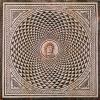Addictions include alcoholism, nicotine, sex, porn, gaming, gambling, pornography, and internet/social media/text messaging addiction. I believe the porn/internet/social media/text messaging/email/twitter type addictions are especially dangerous not in how destructive they are but how unnoticed they are. While they don't affect someone like a full blown cocaine addiction, they are completely socially acceptable and subversive, like smoking was in the 50s. Attention and infatuation are of course addictive, and someone who acts upon these motivations is considered by everyone as immature and a fool for love. Seeing someone going through an abrupt break up is like seeing a junkie with no fix.
How does the brain fight this urge to want something? It doesn't. Over time desires fade, but the brain is always primed to desire. All we can do is become aware of the process, that is what maturity is about. Why else would rites of passage to become an adult in so many cultures independently arise as near death experiences, acetic practices, or extremely painful experiences? They are there to accustom people with true pain, so that they can act without fear of losing what they desire, it is the only way to freedom. So be optimistic about your heartbreak or drug addiction, it is your chance to be free.
How to fix addictions:
Fixing addiction is a two pronged approach: by allowing the neurology to rebuild and by developing new habits. You can think of the hardware/software metaphor for the human brain. Through abstinence and time the reward centers (hardware) become sensitive to pleasure again,
but if one doesn't have healthy habits or thought patterns (software) the cycle repeats itself. This isn't a perfect metaphor because the software
is the hardware when taken literally. For example the prefrontal cortex (hardware) is developed as one gets better at self control (software). Also pathways to the reward centers (hardware) are connected more to healthy choices or thought patterns (software).
Ways to fix software:
-Building a routine of good habits. As you achieve things you wish to do you will build confidence in your ability to help yourself.
-Meditation. Becoming aware of your emotional states will help you cope with stress in a healthy way.
-Developing self control. Use things like reading or dual n back to develop your willpower, which is finite, and must be used only in short bursts to prevent relapses.
-Therapy, socializing, and or artistic expression. If you are able to relate with others about what you are going through it will aid in actualizing who you are and get you through the process by externalizing the problem as a separate identity.
-Removing the guilt cycle. Once you know you are (for lack of better words) powerless to something you must not devalue yourself for using it, or else guilt for using it becomes reason to self harm further by using it more. If you do this it will become a cycle and repeat itself. If you use your addiction then do so in a completely aware and honest way, it is not inherently wrong, it is just where you are in the process.
- - Psychedelics. They put you in a trance state where you became acutely aware of all the previous points, this is not necessary but they show promise in addiction.
Ways to fix hardware:
- Avoid stress. The addicted brain copes poorly with stress from diet or life experiences, so try to limit stress during withdrawals. This is the point of rehab, to go to a place where the addict has zero life responsibilities affecting their brain chemistry. Also a poor diet with low antioxidants is extremely stressful on the brain.
- Sleep. This is when your brain builds, get as much effective sleep as you can. Take melatonin (low dose), magnesium, and/or ashwagandha at night for sleep.
- Give the brain the building blocks it needs to grow neurons and synapses. This needs to happen in a low stress enviroment, so a good diet and antioxidant intake is necessary to begin with.
- Exercise. Voluntary, not over-training or stress producing exercise, is helpful for addicts.
- Give time for the reward center to repair itself. The brain is plastic. It takes 2 weeks for a minor addiction to rebuild dopamine receptors, so that is how long it takes for symptoms of anhedonia to go away, but this is not a sign that addiction is gone. It takes months for habits to become reliable in the brain because new pathways to the reward center take a while to develop, so even if you are feeling good you are still vulnerable to old behaviors. The means months of abstinence for minor addictions or permanent abstinence for major addictions are the only solutions.
BASIC SUPPLEMENTS
These are the supplements required just to have the brain able to repair itself at the normal rate.
MultivitaminMagnesium (glycinate, threonate, or spray) and
Zinc (methionine)
http://www.ncbi.nlm....pubmed/17536489http://www.ncbi.nlm..../pubmed/1844558http://omicsonline.o...05.php?aid=6610http://www.ncbi.nlm....pubmed/23950577http://www.ncbi.nlm..../pubmed/7599515Omega 3 (2-3g DHA and EPA combined)
http://examine.com/s...Oil/#summary5-3
-There is too much to cite here, but omega 3s are required for brain health and repair.
ADVANCED SUPPLEMENTS
These are supplements that show promise for repairing the brain at a faster rate than normal. Anything that upregulates NGF, BDNF, or GDNF can be thrown into this category such as ALCAR, PQQ, Lion's Mane, Royal Jelly. Anthing that is a building block for neuron membrane can go in this category such as inositol, serine, or choline.
Uridinehttp://www.longecity...ne-uridine-dha/Ashwagandhahttp://www.sciencedi...222180812602795http://www.ncbi.nlm....pubmed/19594760http://www.ncbi.nlm....pubmed/23439798http://www.ncbi.nlm....pubmed/22096544ANTI ADDICTIVE SUPPLEMENTS
These are supplements that have direct anti-addictive properties.
agmatine
This one is less promising.
http://www.ncbi.nlm....pubmed/19066410http://www.ncbi.nlm....pubmed/10628739D-Serine, Sarcosine, Glycine-site agonists
This is especially interesting because glycine site dysfunction on the NMDAR is a likely cause of schizophrenia, which shares characteristics with addict pathology.
http://www.ncbi.nlm....pubmed/23518710http://www.ncbi.nlm....pubmed/19595781http://www.ncbi.nlm....pubmed/20541592http://www.ncbi.nlm....pubmed/22728761DOPAMINE RECEPTOR UP-REGULATION SUPPLEMENTS
These supplements will correct the pleasure response and fight anhedonia, but will not provide any solution to destructive habits (does not fix the software). These will give motivation and willpower, both of which are finite and will not get the addict out of addiction without habit corrections, and the supplements are not perfect solutions for anhedonia. These are
not long term solutions.
Forskolinhttp://www.ncbi.nlm..../pubmed/9376541http://www.ncbi.nlm..../pubmed/9353595NMDA Receptor antagonists
Magnesium does this naturally, but at a lower level. Agmatine is also a nmda antagonist. Memantine is a go-to for this. Some use DXM, but that has a really shitty anecdotal back up.
http://www.longecity...e-does-it-work/
It seems that the NMDA receptor functions best when it is not limited by glycine activation but by magnesium activation.
... good luck
Edited by Arjuna, 08 November 2014 - 06:02 PM.























































